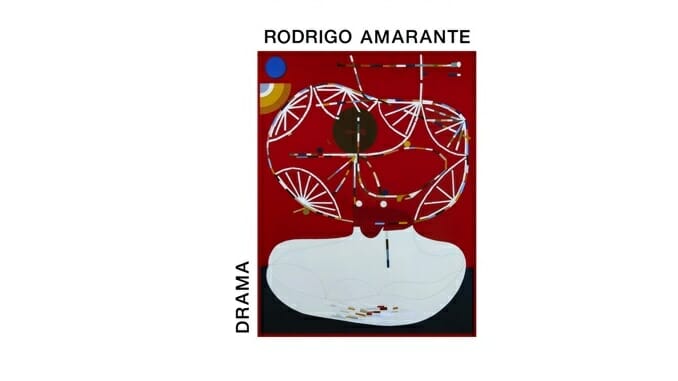No Album Left Behind: Rodrigo Amarante Stuns on Drama
The Brazilian troubadour returns with his most fully realized album in a lengthy career

The hard truth is, no matter how many albums we review each year, there are always countless releases that end up overlooked. That’s why, this month, we’re bringing back our No Album Left Behind series, in which the Paste Music team has the chance to circle back to their favorite underrated records of 2021 and sing their praises.
Can you truly understand a piece of music without a close read of its lyrics?
On one hand, the music itself—the melodies, the beats, the “ooh”s and “aah”s—that’s what gets people to dance, or at the very least to tap their feet. But when looking at the full picture of a song or an album as a whole, the words themselves are meticulously selected just like every guitar riff, string flourish or drum fill. Why this take and not that one? Why this specific word or this phrase and not something else?
That’s why I’ve always (over)analyzed every lyric sheet of everything I listen to. But for whatever reason, that gets thrown out the window when I listen to a song that’s not in English. Instead, I use this as an opportunity to lean into the feel of the songs themselves instead of obsessively trying to figure out what they mean, just as I would with instrumental music.
To give yourself the space to interpret music in this way is a powerful thing, even though I know I’m missing out on the part I usually rely on. For instance, Mdou Moctar’s Afrique Victime was one of my favorite albums of the year, yet I still haven’t read into a single word sung on that album, instead deciding to solely lose myself in some of the best guitarwork I’ve ever heard. Ditto for Sigur Rós; “Glósóli” is one of my favorite songs of all time, a song I’ve heard hundreds of times, yet I refuse to figure out what Jónsi’s lyrics actually mean (I know he’s not singing, “And here they come,” as the guitar crashes into a wall of sound in one of my favorite builds in music history, but I want to think he is).
And that applies to another one of my most-listened-to records of 2021: Rodrigo Amarante’s stunning second solo album Drama, his first since 2014’s Cavalo.
It seems as if Amarante, a Brazilian expat who now lives in Los Angeles, is OK with that sentiment as well, telling NPR earlier this year, “There’s something beautiful about it, too, if you don’t understand the words,” adding, “You have more space in that mirror to project; you can invent something that’s there and you can occupy that space and make your own [understanding].”
Amarante’s been around the block for quite some time, and there’s a decent chance you’ve heard his music without realizing it’s him. For starters, he’s likely best-known in the U.S. for his song “Tuyo,” which acts as the theme song for Netflix’s Narcos. He was also part of Los Hermanos, an early-2000s Brazilian alt-rock band that blew up in Latin America, and Orquestra Imperial, which combined samba and big band music. For the indie rock fans, Amarante also played with Little Joy alongside The Strokes drummer Fabrizio Moretti and Binki Shapiro, releasing a cult-favorite album that still ranks near the top of the best Strokes side projects.
Excluding the slow, string-driven instrumental album opener, Drama’s remaining 10 tracks are essentially split between English and Amarante’s native Portuguese. Every song on the album is warm and beautiful, marked at different points by laidback acoustic guitar, old-timey horn sections, driving percussion, cinematic string arrangements and morose piano. But even though there’s a solid musical through line to the record, I surprisingly found myself more drawn to Drama’s Portuguese songs than its English ones, perhaps because I allowed myself to become more immersed in its grooves and polyrhythms than when I’m able to deconstruct Amarante’s lyrics.
-

-

-

-

-

-

-

-

-

-

-

-

-

-

-

-

-

-

-

-

-

-

-

-

-

-

-

-

-

-

-

-

-

-

-

-

-

-

-

-








































